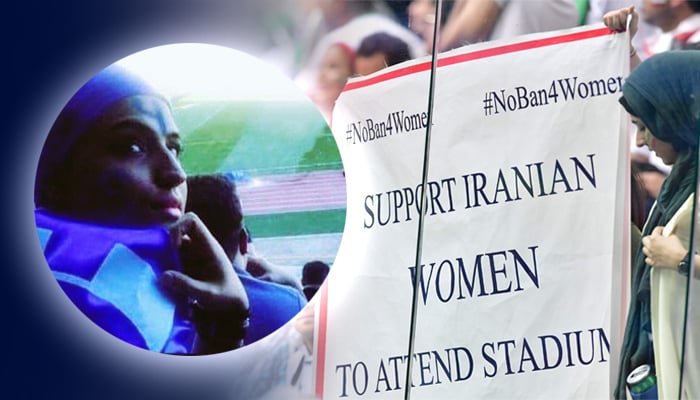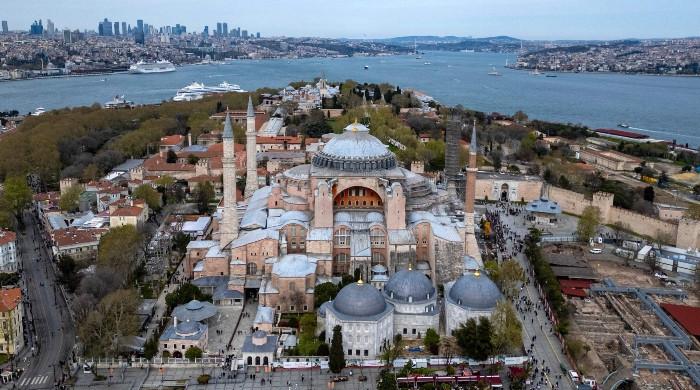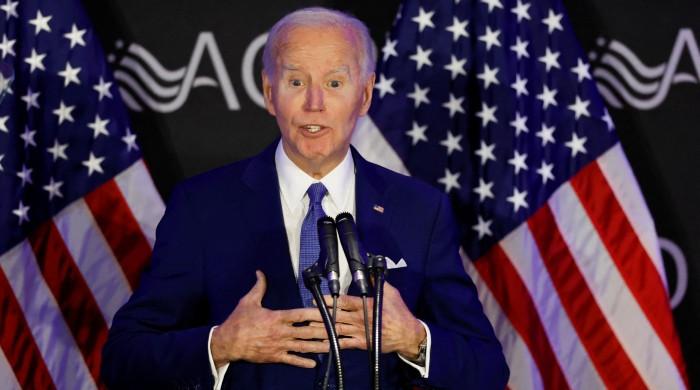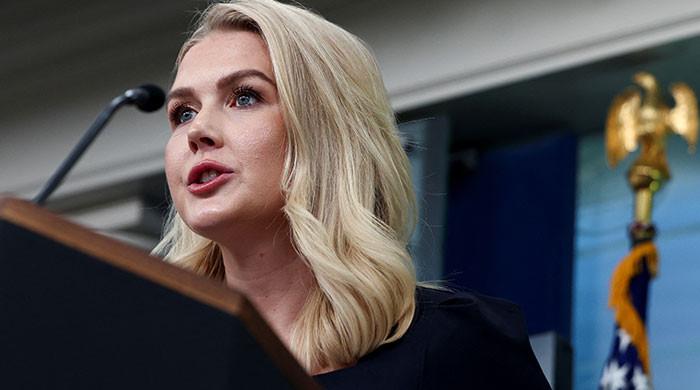Iran under fire over anti-women law after 'Blue Girl' dies of self-immolation
Iran's Sahar 'Blue Girl' Khodayari was arrested early last year when she tried to enter a stadium dressed as a man to watch a football match
September 10, 2019

TEHRAN: Iran came under fire over its anti-women laws after the famed 'blue girl' died early Tuesday of self-immolation in fear of being jailed, triggering calls for an end to a ban on women attending matches.
Dubbed "blue girl" because of the colours of Esteghlal FC, her favourite football team, Sahar Khodayari, 30, set herself on fire outside the court last week after hearing someone there say she would be going to prison for six months.
Khodayari was arrested early last year when she tried to enter a stadium dressed as a man to watch Esteghlal, the Varzesh 3 sports news outlet said, citing her sister.
Though Iran announced to probe the brave woman's death, according to state media, the Islamic Republic has barred Iranian women spectators from football and other stadiums since 1981, with clerics arguing they must be protected from the masculine atmosphere and sight of semi-clad men.
The judiciary's Mizan Online website said a young woman had been arrested when she tried to enter a stadium and faced charges of offending "public chastity and insulting" law enforcement officers.
Citing an informed judiciary official, it said no sentence had been issued since there had been no trial and the judge was away on leave.
Separately, the state-run Iran newspaper reported that the vice president for women and family affairs, Masoumeh Ebtekar, had asked the judiciary to look into the case in a letter.
Hashtag #blue_girl
The reported death sparked an outcry online, where many using the hashtag #blue_girl called on the world football's governing body, FIFA, to ban Iran from competitions.
Pictures said to be of her in hospital covered in heavy bandages have been shared widely on social media.
Iranian football legend Ali Karimi urged his 4.5 million Instagram followers to boycott stadiums. "The women of our land are better than men," he wrote alongside an image of a woman with a football for a heart and flames over her head.
FIFA, on the other hand, said it was "aware of that tragedy and deeply regret it", it said in a statement. "FIFA... reiterate our calls on the Iranian authorities to ensure the freedom and safety of any women engaged in this legitimate fight to end the stadium ban."
Amnesty International called her death "shocking" and issued a similar call from London.
'Draconian ban, subsequent trauma'
"Khodayari would still be alive if it were not for this draconian ban and the subsequent trauma of her arrest, detention and prosecution for attempting to circumvent it," said Amnesty's Philip Luther.
"Her death must not be in vain. It must spur change in Iran if further tragedies are to be avoided in the future."
Esteghlal expressed sorrow over her death.
"The tragic death of our beloved child, Ms. Sahar Khodayari, has caused much sadness and regret for Esteghlal FC," the club said. "We offer condolences to you and your relatives, ask God for mercy and forgiveness and also patience and health for your family and all soccer fans."
The judiciary's news website said Khodayari's body had been handed over to her family, who live in Qom, south of Tehran.
Ban 'ruthlessly enforced'
Iran has come under pressure from FIFA to allow women to attend qualifiers for the 2022 World Cup and was reportedly given a deadline of August 31 to comply.
The Iranian sports ministry said last month that women fans would be allowed into the stadium when Team Melli — as the national team are known — play their next home qualifier.
"Women can go to the Azadi stadium on October 10" to watch the match against Cambodia, the sports ministry's deputy for legal and provincial affairs, Jamshid Taghizadeh, was quoted as saying at the time.
The ban on women in stadiums is not written into law or regulations, but is "ruthlessly enforced", said Human Rights Watch, calling it a "clear violation of the rules in FIFA".
The authorities in Iran have allowed foreign women to go to matches in the country in the past.
While a small number of Iranian women have attended select international matches on previous occasions, others have faced prosecution for entering stadiums at other times.











